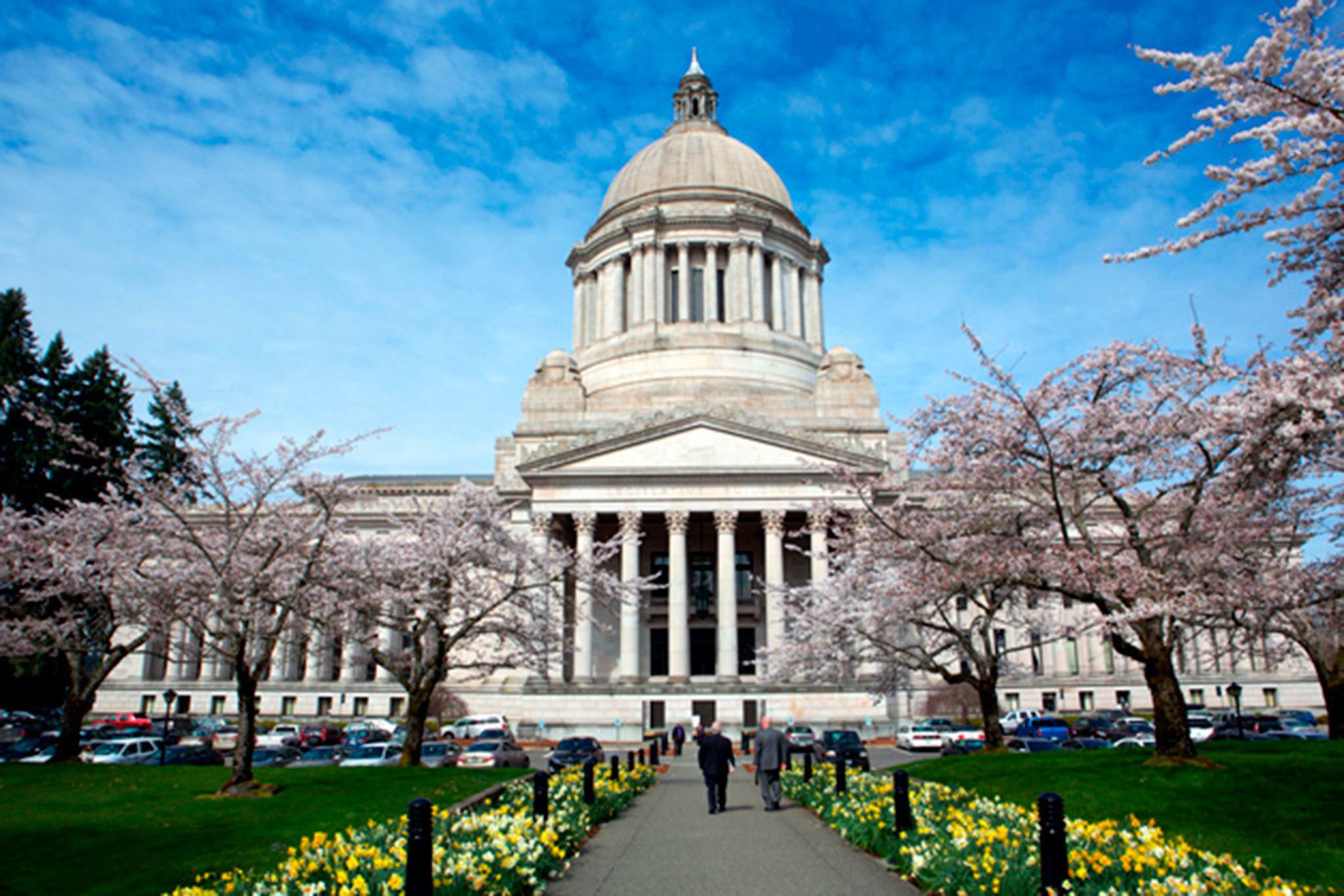OLYMPIA — As the 105-day session of the 2017 Washington Legislature began Monday, several contentious issues loomed in addition to the biggest agenda item of all: funding basic education.
Bills filed in December before the session began this week detail some of the concerns legislators have about issues in the state besides education.
Police Use of Deadly Force
In November, a Washington state legislative task force recommended lawmakers amend the current statute protecting law enforcement officers from prosecution if they use deadly force while confronting life-threatening situations.
Current law states an officer cannot be charged if he or she acted without malice and in good faith to protect themselves and the public. The Use of Deadly Force in Community Policing Joint Task Force recommended that references to “malice” and “good faith” in the law be removed. The task force proposes criminal-liability protection for officers who, at the time of a confrontation, simply believe that the use of deadly force is necessary.
The first bills submitted to the Legislature in December, HB 1000 and SB 5000 sponsored by Rep. Beth Doglio, D-Olympia, and Sen. John McCoy, D-Tulalip, respectively, would establish those recommendations in the law.
“When you have a law that says an officer won’t be held liable no matter what happens, that’s a problem,” Senator McCoy said. “The officer needs to be protected, but so does the citizen.”
The amendments to current law regarding the use of deadly force brings Washington more in line with the rest of the country, according to Elisabeth Smith, legislative director for the American Civil Liberties Union in Washington state. Washington is the only state in the nation that considers without malice and good faith as criteria for the use of deadly force.
“The important thing about the bill is that it envisions a reasonable officer standard,” Smith said.
The removal of the without malice and good faith considerations would make it easier to prosecute recklessness, according to Smith.
Some opponents, like Mitch Barker, executive director of the Washington Association of Sheriffs and Police Chiefs, argue it’s not clear how the bill improves public safety and that it leaves officers vulnerable.
“The bill was crafted by people who have never been on the job,” Barker said. “It’s just not reality.”
HB 1000 has been assigned to the House Public Safety Committee. No hearing date is set. SB 5000 is assigned to the Senate Law and Justice Committee. No hearing date is set.
Abortion Restrictions
Proposals limiting a woman’s ability to obtain an abortion also earned early attention among legislators.
Several Republican representatives are sponsoring two bills that could affect the accessibility Washington women have for abortions. HB 1002, primarily sponsored by Rep. David Taylor, R-Moxee, proposes prohibiting the use of public funds for abortion unless the procedure is medically necessary to save the life of the woman seeking an abortion.
HB 1003, sponsored by Rep. Matt Shea, R-Spokane Valley, would require that doctors inform the parents of a pregnant woman under the age of 18 who seeks an abortion.
Tiffany Hankins, deputy director of NARAL Pro-Choice Washington, argues that the bills target low-income women and teenagers.
“This is an attempt to chip away at abortion rights of the most vulnerable women in Washington,” Hankins said.
Both HB 1002 and 1003 await hearings in the House HealthCare and Wellness Committee.
Medical Marijuana
Medical marijuana use in schools also drew the attention of lawmakers pre-session.
Less than a week before the Legislature convened, Rep. Brian Blake, D-Aberdeen, sponsored HB 1060 which would require school districts to allow students to consume medical marijuana on school property, including on buses and at school-sponsored events.
“This is about allowing parents to administer the medication their children need,” Representative Blake contends.
The bill would make it easier for parents like John Barclay, the father of a 7-year-old student with a seizure disorder, to give his child medication. His daughter must receive a dosage of cannabidiol multiple times a day, including a dosage at noon, Barclay related.
“It’s difficult, to say the least,” Barclay said.
The Aberdeen School District has prohibited Barclay from giving his daughter medical marijuana on school grounds, he said. Currently, Barclay takes his daughter out of school at noon and she misses four hours of class.
“When I remove her from school, she doesn’t want to go back,” Barclay said. “She’s 7.”
HB 1060 is assigned to the House Education Committee for consideration.
The fate of these bills rests in the legislative process now underway at the state capital. Legislative committees began deliberations Monday as the session opened. Hearings on these bills and the scores of new ones being filed daily, suggest a lengthy process ahead — in addition to the intense deliberations promised on the budget and funding basic education.
Enrique Pérez de la Rosa is a reporter with the WNPA Olympia News Bureau.
This story is part of a series of news reports from the Washington State Legislature provided through a reporting internship sponsored by the Washington Newspaper Publishers Association Foundation. Reach reporter Enrique Pérez de la Rosa at perezenrique17@gmail.com.



